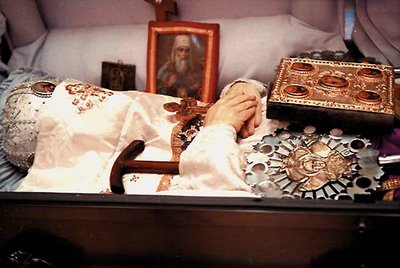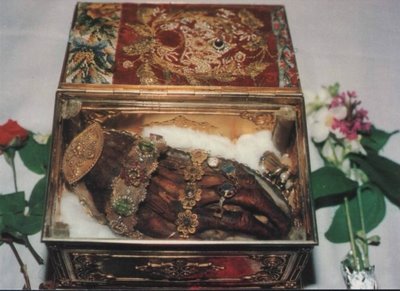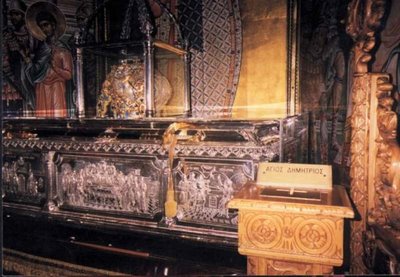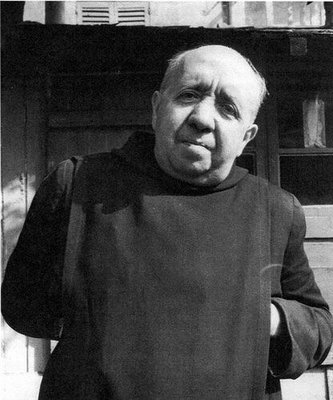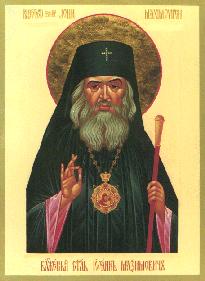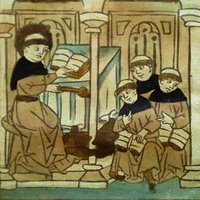Around the Internet, one often runs into comments, Web sites, and whole religious groups which warn of the "pan-heresy of Ecumenism." These anti-ecumenism pundits will often tout slogans such as "Orthodoxy or Death" and urge true believers to beware of "False Union" with other Christian but Non-Orthodox bodies.
The heresy of ecumenism, specifically defined, is the belief that either the Orthodox faith is not wholly sufficient for salvation or that all Christian communions believe basically the same things and should reunite sacramentally and in the fellowship of common prayer. The ecumenist heretic may not believe that the Orthodox Church is the true Church founded by Christ and His Apostles and preserving their teachings uncorrupted to the present day. The ecumenist heretic may also believe that every other expression of Christianity (or even Non-Christian religious faith) is equally valid and wholesome.
All these ideas have, obviously, been around for a long time outside and inside of the Orthodox communion. However, it is important to make some significant distinctions which those who most often claim to be the most hard-line anti-ecumenists many times fail to make.
1. Involvement in the Ecumenical Movement does not mean that one holds the beliefs of an ecumenist heretic. Simply belonging to and holding discussions with an inter-faith body is not strong enough evidence for one to be convicted of heresy. As far as I know, even in Orthodox ecclesiastical courts and synods, there is no guilt by association. A conviction for heresy requires an examination into the actual beliefs of the accused. Therefore, those who cry "ecumenist heretic" at a member of the Patriarchate of Moscow, Antioch, Jerusalem, or Constantinople, for example, are spreading gossip and bearing false witness. The accused must speak for himself and be examined by those who have the right to examine him. Hearsay, off-hand remarks, rumors, and the like are not solid, admissable evidence, especially when brought up by unqualified persons (for example, random laymen accusing a bishop).
2. Just because a particular hierarch is involved in the Ecumenical Movement or even happens to be an ecumenist heretic, God forbid, does not mean that all the faithful under him are heretics, too. This goes for bishops and priests as well. Therefore, those groups who claim to be True or Genuine Orthodox and keep the faith "pure" while separating from most or all of the Orthodox communion, are at best schismatics with zeal not according to knowledge and at worst rogues and ecclesiastical rebels pretending to be Orthodox and following after charlatans and quacks.
The purity of the Orthodox Faith does not, thank God, depend solely on her hierarchs. One, or even a series of mis-statements or even theological blunders does not mean that the people under that bishop are no longer Orthodox. It does not even mean that the bishop is no longer Orthodox.
Those who have separated themselves in little pockets of theological purity have followed after those who think more of their own opinions than of the Orthodox tradition. If a bishop errs in making a decision, he will have to answer to God. Those who are under him must still be obedient because, until a synod depose him, he is still the ruling bishop.
The ancient Orthodox Churches of Alexandria, Antioch, Constantinople, Jerusalem, Serbia, Russia, Romania, etc. continue to flourish despite oppression from Communists, Mohammedans, and secularists. Meanwhile, the groups which have broken off, each to their own, like the so-called Holy Orthodox Church of North America (HOCNA), the Russian Orthodox Autonomous Church (ROAC--now apparently split between an administration in Russia and one in America), the Russian Orthodox Church In Exile (ROCiE--a splinter from the Russian Orthodox Church Outside Russia, which is in communion with the other ancient Churches of the Orthodox world), and the many Greek, Romanian, and Bulgarian Old Calendrists groups continue to fragment and develop narrower and narrower visions of Orthodox truth, without deference to tradition and history, let alone the rest of the Orthodox world.
The thought that only me or my group has the right faith and all the other Orthodox are in delusion or not genuinely Orthodox is very dangerous. In this way, demonic pride is hidden behind a mask of fidelity to the truth.
It is time for these separated churches, their faithful and bishops to reevaluate their positions and their beliefs, to stop making excuses for their schisms, to stop pointing fingers at other bishops.
It should not be taken lightly that the Church on earth is also in communion with the saints and angels in heaven. If those following the New Calendar, for example, have been noted for sanctity, is following the New Calendar something justifying schism? If merely being a member of an ecumenical body is so damning, why, after so many decades of envolvement, haven't these Churches adopted the beliefs of the ecumenist heresy as outlined above? It is the Communion of Saints, I think, which has held Orthodoxy together even through difficult and confusing times.
The bishops have been put where they are by the will of God. If that is so, they have God to judge them, and synods of their peers to chastise them. It is not, therefore, mine or any other layman's or singular bishop's place, to sit in judgement. It is something reserved for learned men having the appropriate authority. For everyone else, it's a waste of time.
So, enough of rumors like "I heard so and so is a Mason," or "Bishop N. said that Christians, Mohammedans, Hindoos, and Buddhists serve the same God." These things are, in the first place, unsubstantiated rumors. Even if they were proven to be true, they do not have consequences affecting anyone but the individual who is a Mason or ecumenist heretic.
Rumors of heresy and gossip about personal conduct often have a convenient way of drawing attention away from the person starting the rumor or the gossip. Perhaps that person is guilty of the same or worse sins, besides just gossiping. Also, when other people listen to and accept these rumors and this gossip, and spread them to still more people, they endanger their own souls and the souls of those to whom they spread this filth. Being against ecumenist heresy is one thing, and commendable. But being totally consumed by zealotry to the point where one spreads slander and leaves the Orthodox Church for a puritanical sect is quite another, and totally condemnable. Already, this zeal not according knowledge has ruined many souls--the Orthodox who have been drawn into reactionary sects, the leaders and perpetuators of these sects, and the many innocent victims of this whole brainless campaign--the seekers of ancient Christianity confused, seduced, or turned aside by the words and actions of zealots without knowledge or love.
Temptations come from the right and from the left, that is, from what appears to be good and what is manifestly evil. Our job is to stick to the royal path and not to wander off in search of another one, no matter how "good" it might seem. Only by having moderation as our ascetic way will we reach our heavenly destination unharmed by the assaults of the enemy.

